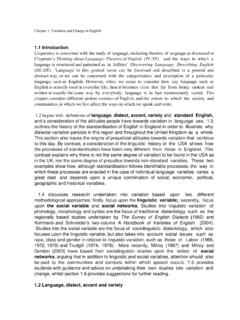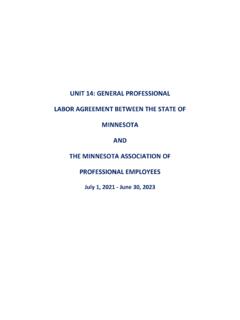Transcription of The Use of English as Medium of Instruction at the Upper ...
1 Journal of education and Practice ISSN 2222-1735 (Paper) ISSN 2222-288X (Online) , , 2015 72 The Use of English as Medium of Instruction at the Upper Basic Level (Primary four to Junior High School) in Ghana: From Theory to Practice Charles Owu-Ewie, PhD 1* Emma Sarah Eshun2 of Akan-Nzema Languages education , Faculty of Languages education , University of education , Box 25, Winneba, Ghana of Basic education , Faculty of Educational Studies, University of education , Box 25, Winneba, Ghana *Email: Abstract The language of education is crucial to learners academic success. As a result, nations whose native languages are not the languages of education have promulgated language policies to solve communication problems in their school systems.
2 Most multilingual nations have adopted bilingual education systems that recognize the child s native language and a second language, which in most cases is the official language of the nation. Ghana, because of its multilingual nature, has promulgated a language policy which uses the child s L1 as Medium of Instruction at the lower basic level (KG1 to Primary 3) and English (L2) used from Primary four onwards. However, this policy has not been rigorously observed and enforced by teachers and educational administrators respectively. This qualitative study, therefore sought to examine the factors that have militated against the use of English as Medium of Instruction in the Upper section of the basic educational system in Ghana (Primary 4 to Junior High School) and examined ways to facilitate the use of English as Medium of Instruction in this sector of the educational system.
3 Keywords: Medium of Instruction , Language Policy, Junior High School, L1 Instruction , L2 Instruction ( English ) 1. Introduction Language and education are two inseparable concepts because education is disseminated via language. As Dube and Ncube (2013, p. 250) put it, education and language are dependent on each other. If education is to be attained, language has to be used and for language to endure, survive and be respected, it has to be taught in schools . However, Wolff (2005, p. 3) is of the opinion that language is not everything in education , but without language, everything is nothing in education . Though language is not everything in education , the language of education has always been a bone of contention, especially in multilingual societies because of the effect it has on educational success.
4 Opinion is divided on whether to use L1 as Medium of Instruction or a foreign language ( English , French, etc). Again, opinion is divided on when to use the L1 or L2 as Medium of Instruction . As a result, nations whose native languages are not the dominant languages of education have promulgated language policies to solve communication problems in their school systems. Most multilingual nations have adopted bilingual education systems that recognize the child s native language and a second language, which in most cases is the official language of the nation. Though most countries have sound language policies in their educational system on paper (theory), they lack the political will to implement them.
5 As UNESCO (2008a) indicates, some multilingual countries have constitutional clauses and even education policy documents that honour the rights of diverse groups to use their own languages and promote their own cultures, but meanwhile the same countries lack implementation strategies that would benefit such groups in real terms. Ghana, like many African countries has problem selecting a language for education and ensuring its successful implementation because of her multilingual nature. Ghana is linguistically and ethnically diverse with about 83 languages present (see Owu-Ewie, 2013). In addition, English is Ghana s official language because of her historical past with the British. Though Ghana is a multilingual society, the country has no official/explicit language policy.
6 The only language policy in Ghana is that formulated in education . The policy stipulates that L1 (a Ghanaian language) should be used as Medium of Instruction from KG1 to Primary three and English studied as a subject. The second part of the policy indicates that English should be used as Medium of Instruction from Primary 4 onwards and Ghanaian language studied as a core subject up till the Junior High School level. The current language policy adds that where teachers and learning materials are available and the linguistic composition of classes are fairly uniform, the children's first language must be used as the dominant Medium of Instruction in kindergarten and lower primary school. The corollary of this is that where these two conditions (lack of learning materials and fair linguistic uniformity of classes) are not met, the policy should not be implemented.
7 This has made most teachers/educational practitioners to hide behind this caveat and disregard the Journal of education and Practice ISSN 2222-1735 (Paper) ISSN 2222-288X (Online) , , 2015 73 implementation of the policy. Most teachers disregard the language policy and do what they think is appropriate to them in the classroom. Teachers use English where the policy states that Ghanaian language should be used and do the contrary when they are to use English as the Medium of Instruction (Andoh-Kumi, 2001; Amoah, 2001). These studies and others (Andoh-Kumi, Amissah, Amoah, Awedoba, Mensah, Wilmot, & Miske, 2001) indicate that the language policy of education in Ghana is not adhered to at the basic level classroom.
8 It is therefore crucial to research into how in practice teachers are implementing the language policy of education (the theory) in the Upper Primary and Junior High School in Ghana and strategies that can be employed to improve the use of English as Medium of Instruction at the Upper primary and the JHS levels. 2. Literature Review Language policies are formulated in multilingual societies to solve communication problems. Language policy according to Bamgbose (1991, p. 1) is a program of action on the role or status of a language in a given community . In almost a parallel situation, Schiffman (1990) sees language policy as what governments officially do through legislation, executive actions or other means to determine how languages are to be used in public contexts, cultivate language skills needed to meet national priorities or establish rights of individuals or groups to learn, use and maintain languages in a multilingual setup.
9 This definition shows that language policy is a deliberate act by a government or an agency/organization. There are three main types of language polices; official language policy, educational language policy and general language policy (Noss, 1971). In this paper, the focus is on educational language policy, which is the recognition given to some languages in a country by the government and educational authorities and agencies for use as Medium of Instruction . In countries where there are no official language policies as to how languages are to be used, the language policy of education serves the purpose. As stated earlier, the only explicitly stated language policy in Ghana is that formulated for education . The only instance where the government of Ghana is officially committed to language issue in the country is in Article 35(3) of the Ghanaian constitution which states The State shall foster the development of Ghanaian languages and pride in Ghanaian culture.
10 This does not go far enough towards the development of Ghanaian languages and cultures because what should be done to foster language development is not explicitly stated. This gives an alibi for the government to neglect the development of Ghanaian languages in the country in general and in education in particular. In multilingual countries where the official language is different from the indigenous languages and where there is no indigenous national language, it is a daunting task for most governments to initiate a far-reaching language policy of education which will have positive effect on children s learning. This has made some multilingual countries take short-cut policies which have detrimental effects on children s academic success. They resort to using the official language of the nation which is not an indigenous language.












